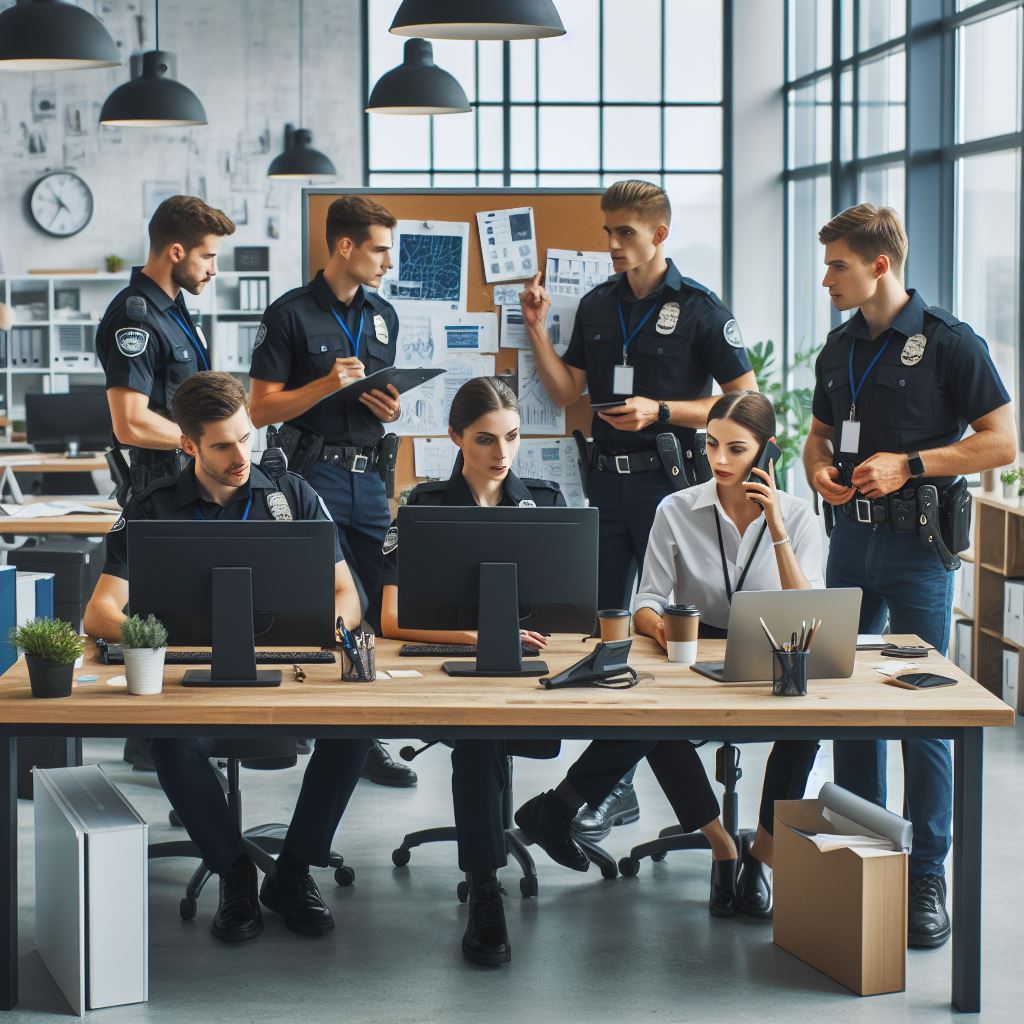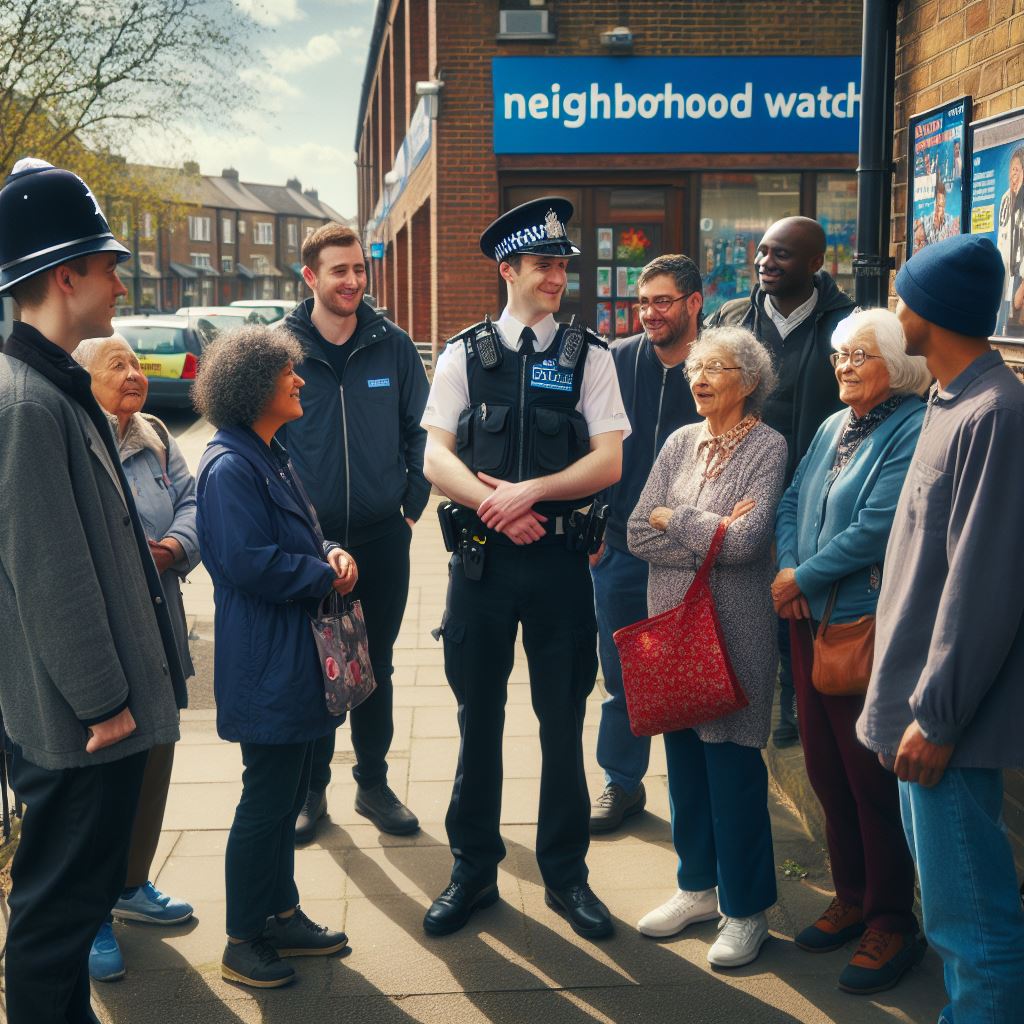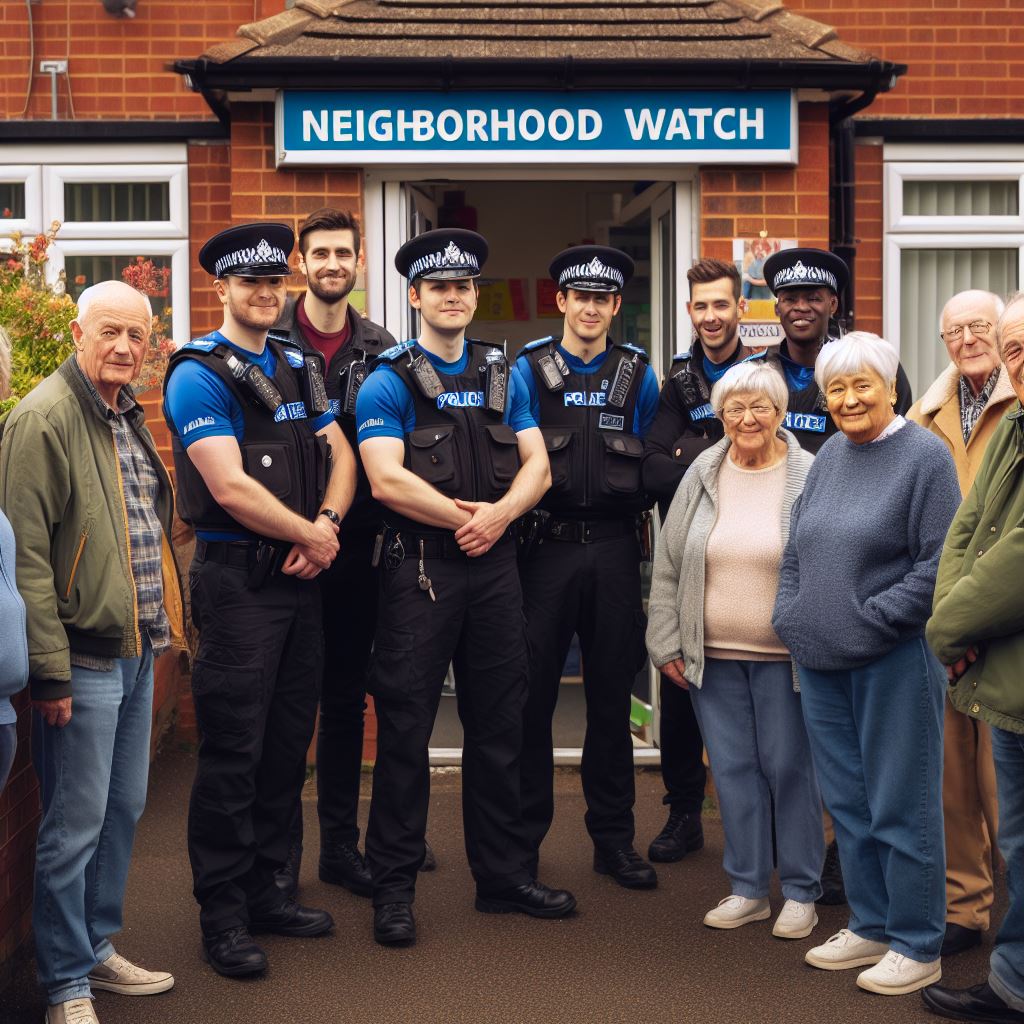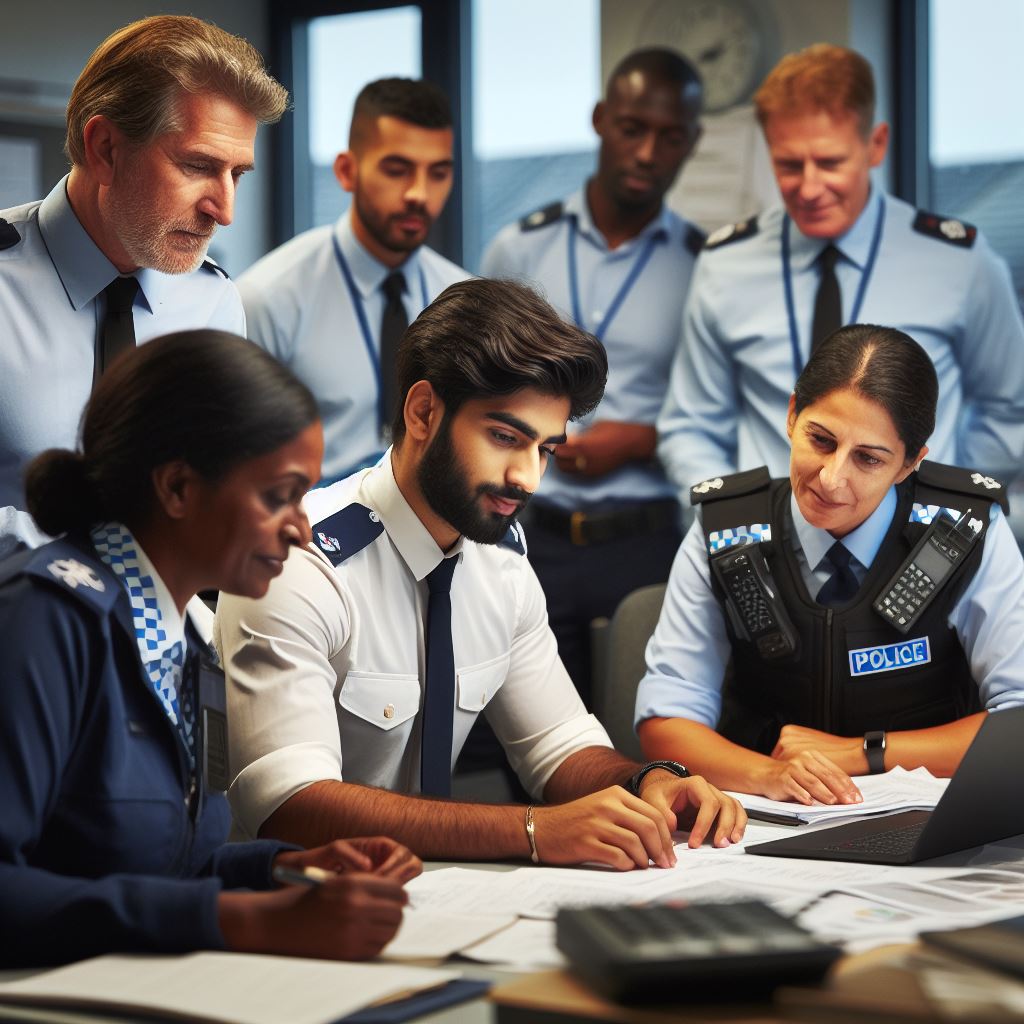Introduction
Understanding UK Police Ranks and Roles is crucial for gaining insights into the structure and functioning of the police force in the United Kingdom.
This knowledge is essential for citizens, aspiring police officers, and researchers.
Understanding UK police ranks and roles helps citizens comprehend the hierarchy and responsibilities, facilitating effective engagement with law enforcement agencies.
This blog post aims to provide a comprehensive overview of UK police ranks and roles, breaking down the different levels within the force and explaining the duties and responsibilities associated with each position.
This blog aims to demystify the UK police system, shedding light on ranks and roles, and providing a clear understanding of its essential role in law enforcement.
Whether you are a UK citizen seeking to interact with the police, considering a career in law enforcement, or simply interested in understanding how the police force functions in the UK.
his blog post will serve as a valuable resource to enhance your knowledge and facilitate better communication with the police.
Stay tuned for an in-depth exploration of UK police ranks and roles in the subsequent sections of this blog post series.
Overview of the UK police structure
The UK police structure consists of various agencies and forces that work together to maintain law and order.
1. Different agencies and forces
- The UK police system is divided into different agencies and forces responsible for different geographical areas.
- Each agency has its own distinct role and responsibilities in maintaining public safety and enforcing the law.
- These agencies work collaboratively to ensure effective law enforcement throughout the country.
- Some of the main agencies include the Metropolitan Police, the City of London Police, and regional police forces.
- Additionally, there are specialized agencies like the British Transport Police that focus on railway network security.
- Other agencies include the National Crime Agency, responsible for combating serious and organized crime, and the Ministry of Defense Police, providing security for defense establishments.
2. The Metropolitan Police
- The Metropolitan Police, often referred to as the Met is the largest police force in the UK.
- It is responsible for law enforcement in Greater London, covering an area of 607 square miles.
- The Met has jurisdiction over areas such as the City of Westminster, Kensington and Chelsea, and the East End
- It employs over 30,000 police officers and has a wide range of specialized units, including the Counter Terrorism Command.
- The Met plays a crucial role in tackling crime, ensuring public safety, and maintaining order in the capital city.
3. The City of London Police
- The City of London Police is responsible for law enforcement in the City of London, which is an independent jurisdiction within Greater London
- It is the smallest territorial police force in the UK but holds a unique position due to the concentration of financial and commercial institutions in the City.
- With over 700 officers, the City of London Police focuses on protecting the business community and combating economic crime.
- It also provides support to the financial sector in areas such as fraud investigation and cybersecurity.
- The City of London Police works closely with the Metropolitan Police and other agencies to maintain security in the capital.
In short, the UK police structure consists of various agencies and forces working together to ensure public safety and uphold the law.
The Metropolitan Police and the City of London Police are two significant forces within this structure, each with its own specific responsibilities and jurisdictions.
By collaborating and sharing resources, these forces strive to maintain law and order throughout the UK.
Read: Top Challenges Faced by UK Diplomats Abroad
Explanation of police ranks
In order to comprehend the hierarchy and progression of ranks in the UK police force, it is essential to have a clear understanding of the different ranks and their roles within the organization.
Police ranks define the authority levels and responsibilities within the police force.
Personalized UK Career Consulting
Receive tailored career guidance designed just for you. Get actionable steps and expert support to boost your career in 1-3 days. Take control of your career now.
Get StartedThey help maintain a structured chain of command, ensuring efficient decision-making and coordination.
1. List of different ranks in the UK police force
- Police Constable: The entry-level rank, responsible for various patrol duties and crime prevention.
- Sergeant: A middle-ranking officer who supervises lower-ranking officers and manages the day-to-day operations.
- Inspector: Supervises Sergeants, conducts investigations, manages resources, and ensures the efficiency of their assigned area.
- Chief Inspector: Responsible for overseeing several Inspectors, coordinating activities, and implementing strategic plans.
- Superintendent: Manages multiple departments, sets priorities, and ensures a high standard of professional performance.
- Chief Superintendent: Responsible for overseeing a larger geographical area and providing strategic leadership.
- Assistant Chief Constable: Assists the Chief Constable and manages specific portfolios or departments.
- Deputy Chief Constable: The second-highest rank in most police forces, responsible for operational management and assisting the Chief Constable.
- Chief Constable: The highest-ranking officer in the police force, responsible for overall strategy, setting objectives, and maintaining public confidence.
2. Hierarchy and progression of ranks
- The ranks in the UK police force follow a hierarchical structure, with each rank having clearly defined responsibilities and levels of authority.
- Advancement within the ranks is typically based on experience, performance, and successful completion of promotional assessments.
- Progression usually involves acquiring additional skills, attending specialized training, and demonstrating leadership capabilities.
3. Differences between ranks in different police forces
Despite similarities in rank structure, some variations exist between different police forces in the UK.
- The Metropolitan Police Service (MPS) in London has an additional rank of Commander above the Chief Superintendent.
- Some forces may have unique ranks to address specific operational requirements or reflect organizational differences.
In essence, understanding the ranks and roles within the UK police force is crucial for comprehending the organization’s structure and hierarchy.
From the entry-level Police Constable to the highest-ranking Chief Constable, each rank plays a vital role in maintaining law and order, upholding community safety, and serving the public.
While the general progression and hierarchy across police forces remain consistent, some variations and additional ranks exist to address unique operational requirements.
Read: UK Diplomats’ Impact on Global Affairs Explained
Roles and responsibilities of each rank
The responsibilities of each rank from constable to chief constable
In the UK police force, each rank comes with distinct roles and responsibilities. Let’s delve into the details:
The main duties and tasks associated with each rank
Constable
- Upholding law and order within their designated area.
- Responding to emergencies and incidents, maintaining public safety.
- Conducting investigations, gathering evidence, and presenting it in court.
Sergeant
- Supervising and managing the work of constables.
- Providing guidance and support to colleagues, ensuring professional development.
- Overseeing crime scenes, making critical decisions, and maintaining communication.
Inspector
- Commanding and supervising police teams, ensuring efficient operation.
- Assessing and managing risks, taking appropriate action to enforce the law.
- Handling complex investigations, coordinating resources, and liaising with other agencies.
Chief Inspector
- Leading a team of officers and shaping the strategic direction of their department.
- Implementing new policies, reviewing performance, and ensuring high standards.
- Representing the police force at public events and maintaining community relationships.
Superintendent
- Overseeing multiple departments and managing their operational efficiency.
- Developing strategies, allocating resources, and monitoring performance levels.
- Coordinating major incidents, and forming partnerships with external stakeholders.
Chief Superintendent
- Providing overall command within their designated area, responsible for public safety.
- Implementing national strategies, and leading collaborations with other organizations.
- Overseeing high-profile investigations and ensuring effective resource allocation.
Assistant Chief Constable
- Assisting the Chief Constable in managing and implementing force-wide strategies.
- Representing the force at a senior level, dealing with media and public inquiries.
- Monitoring performance and ensuring adherence to legal standards and procedures.
Deputy Chief Constable
- Assuming temporary responsibility for the force in the absence of the Chief Constable.
- Overseeing the internal workings of the police force and managing resources.
- Building relationships with external partners and representing the force in national meetings.
Chief Constable
- Leading and commanding the entire police force, responsible for its overall performance.
- Setting strategic direction, establishing policies, and maintaining public trust.
- Collaborating with key stakeholders, such as government officials and community leaders.
The level of authority and decision-making power held by each rank
Each rank holds its own level of authority and decision-making power:
- Constables have limited decision-making autonomy but contribute to the front-line enforcement of law.
- Higher ranks, such as sergeants and inspectors, possess more authority to direct operations.
- Superintendents and chief officers have greater decision-making power to manage resources and shape long-term strategies.
The UK police force operates under a hierarchical structure where each rank plays a vital role in maintaining law and public safety.
Read: Historic Milestones in UK Diplomatic History
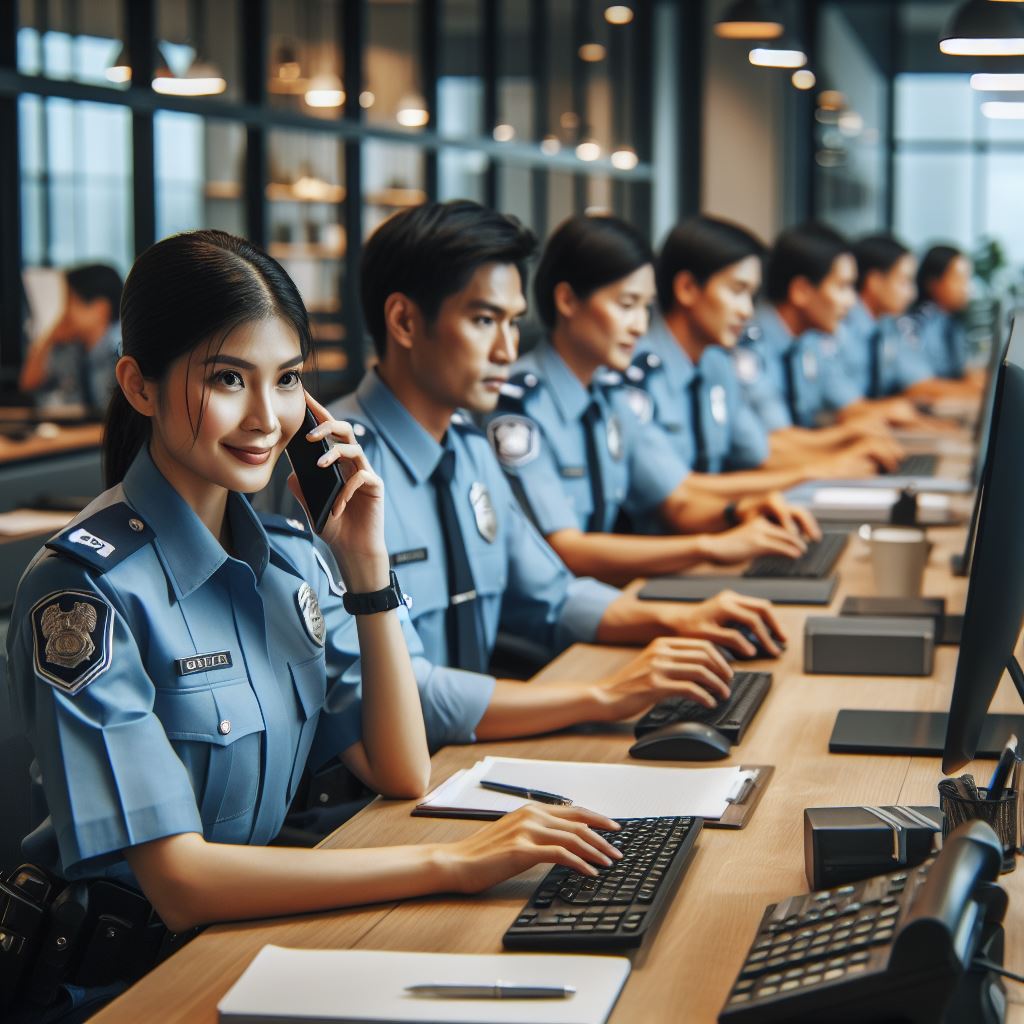
Gain More Insights: The Future of UK Civil Service Work
Specialized roles within the police force
- In addition to the general duties of police officers, there are specialized roles within the police force.
- One such specialized unit is the detectives, who are responsible for investigating crimes and gathering evidence.
- Another specialized role is that of firearms officers, who are trained to handle and use firearms in high-risk situations.
- There are also dog handlers within the police force, who work alongside specially trained police dogs to assist in various tasks.
- These specialized roles require additional training and qualifications beyond the basic police officer training.
- Detectives, for example, undergo training in investigative techniques and evidence collection.
- Firearms officers receive intensive training in the use of weapons and tactics for dealing with armed suspects.
- Dog handlers undergo specialized training to effectively work with police dogs and utilize their capabilities.
Specialized units and roles such as detectives, firearms officers, and dog handlers
Within the police force specialized units play a crucial role in maintaining law and order.
- Detectives provide expertise in solving complex criminal cases, and bringing perpetrators to justice.
- Firearms officers are deployed in situations where there is a high risk of violence or armed offenders.
- Dog handlers and their police dogs are valuable assets in searching for missing persons or detecting illegal substances.
Having these specialized units allows for a more targeted and effective approach to maintaining public safety.
Detectives can thoroughly investigate crimes, gathering evidence and building strong cases for prosecution.
Your Dream Job Starts with a Perfect CV
Get a tailored CV and cover letter that captures your unique strengths and stands out in your industry. Let us help you make an unforgettable first impression.
Get StartedFirearms officers can swiftly respond to high-risk situations, minimizing the potential harm to innocent civilians.
Dog handlers and their police dogs can quickly locate missing persons, saving valuable time and resources.
The additional training and qualifications required for these roles
Furthermore, the additional training and qualifications required for these roles ensure that officers possess the necessary skills and knowledge to handle their specific responsibilities.
The importance of specialized units in maintaining law and order
These specialized units contribute to the overall effectiveness of the police force in protecting communities and upholding the law.
Moreover, by employing officers with specialized expertise, the police force can tackle a wide range of criminal activities more efficiently.
Overall, specialized roles within the police force are essential in maintaining law and order, ensuring public safety, and bringing criminals to justice.
Read: Balancing Work and Life as a UK Diplomat
Career progression and opportunities in the UK police force
Joining the UK police force can be the start of an exciting and rewarding career.
Not only does it provide the opportunity to serve and protect the community, but it also offers numerous avenues for career development and progression.
Opportunities for development and promotion
Once you become a police officer, the path to career advancement opens up.
The UK police force emphasizes the importance of continuous learning and development, offering officers various opportunities to enhance their skills and knowledge.
- Training programs: The police force provides comprehensive training programs for officers at different stages of their careers.
These programs ensure that officers are equipped with the necessary skills to handle a range of situations. - Specialized units: Officers can choose to specialize in various areas such as traffic, canine handling, firearms, or cybercrime.
These specialized roles offer unique challenges and opportunities to further develop expertise in specific fields. - Community liaisons: Engaging with the community is a vital aspect of policing.
Officers can take on community liaison roles, fostering trust and building relationships with local residents and organizations.
Career paths in leadership and management
The UK police force values leadership and offers a range of career paths for officers interested in management roles.
- Sergeant: After gaining experience as a constable, officers can aspire to become a sergeant.
In this role, they are responsible for overseeing a team of constables and ensuring the efficiency of daily operations. - Inspector: Dedicated and capable sergeants can progress to the rank of inspector.
Inspectors have wider responsibilities, including managing complex investigations and supervising multiple teams. - Chief officer: The highest ranks in the police force include chief superintendent, assistant chief constable, deputy chief constable, and chief constable.
These roles involve strategic planning, policy-making, and leading the force in keeping the community safe.
Continuous professional development for advancement
Continuous professional development (CPD) plays a crucial role in career progression within the UK police force.
- Additional qualifications: Pursuing higher education or specialized qualifications can open doors to more senior positions within the force.
- Leadership programs: The police force offers leadership development programs to nurture the skills and qualities required for managerial roles.
- Mentorship and coaching: Experienced officers often mentor and coach their colleagues, providing guidance and support to help them progress in their careers.
- External courses and workshops: Officers can attend external courses and workshops to enhance their knowledge in specific areas or develop new skills that are relevant to their career goals.
In a nutshell, a career in the UK police force offers a range of opportunities for development, promotion, and progression.
Optimize Your LinkedIn for Success
Boost your LinkedIn profile with a professional bio, keyword-rich headline, and strategic recommendations that attract recruiters. Stand out from the crowd and get noticed.
Optimize NowThe force recognizes the importance of continuous learning and provides numerous avenues for officers to expand their skills and advance in their careers.
Explore Further: Impact of Brexit on UK Civil Servants
Conclusion
Understanding the UK police ranks and roles is crucial for both law enforcement professionals and the general public.
This knowledge allows for better cooperation and support, ensuring the safety and security of the community.
By knowing the hierarchy and responsibilities of each rank, individuals can contribute effectively to crime prevention and enforcement activities.
It is essential for law enforcement professionals to comprehend the different roles within the police force to maintain effective communication and collaboration.
Likewise, the general public benefits from understanding the ranks as it enables them to engage with the police more efficiently during emergencies or reporting incidents.
Furthermore, for those interested in pursuing a career in the UK police force, delving deeper into the subject is highly encouraged.
Moreover, gaining a comprehensive understanding of police ranks and roles will help prospective candidates make informed decisions about their future and prepare them for their chosen path in law enforcement.
Ultimately, knowledge of UK police ranks and roles is invaluable, promoting a safer community and a more efficient police force.
[E-Book for Sale]
500 Cutting-Edge Tech Startup Ideas for 2024 & 2025: Innovate, Create, Dominate
$19.99 • 500 Tech Startup Ideas • 62 pages
You will get inspired with 500 innovative tech startup ideas for 2024 and 2025, complete with concise descriptions to help you kickstart your entrepreneurial journey in AI, Blockchain, IoT, Fintech, and AR/VR.

